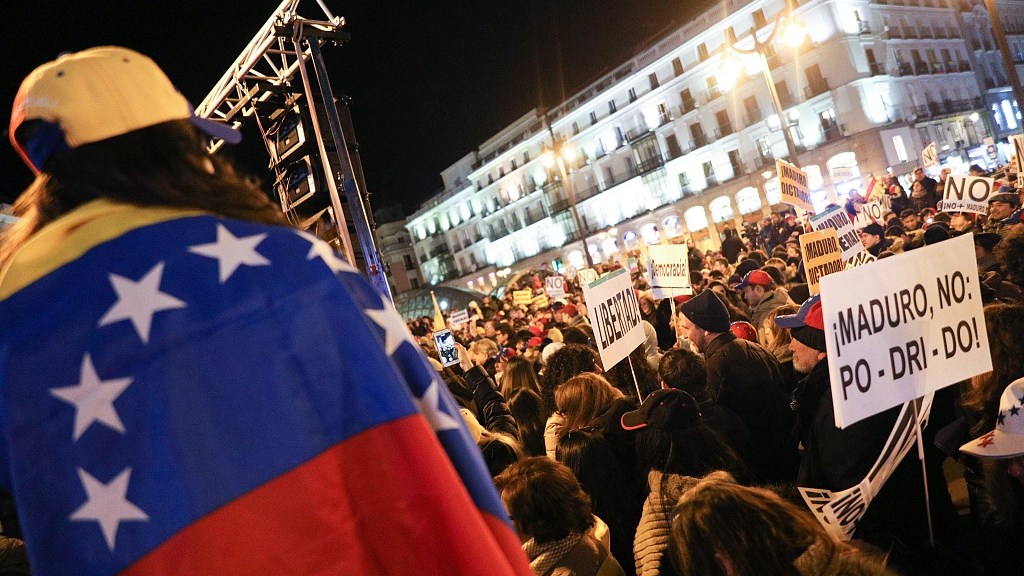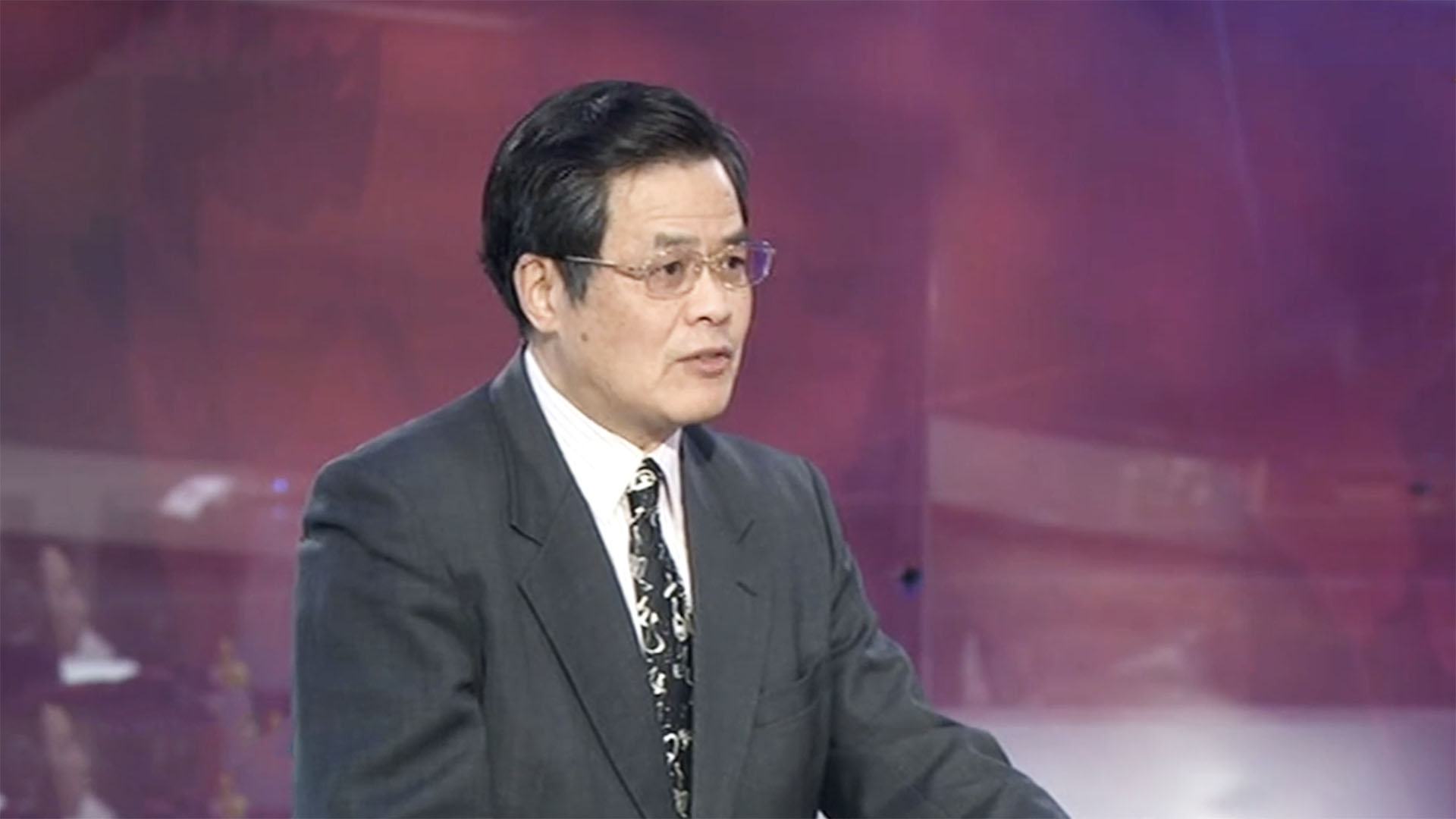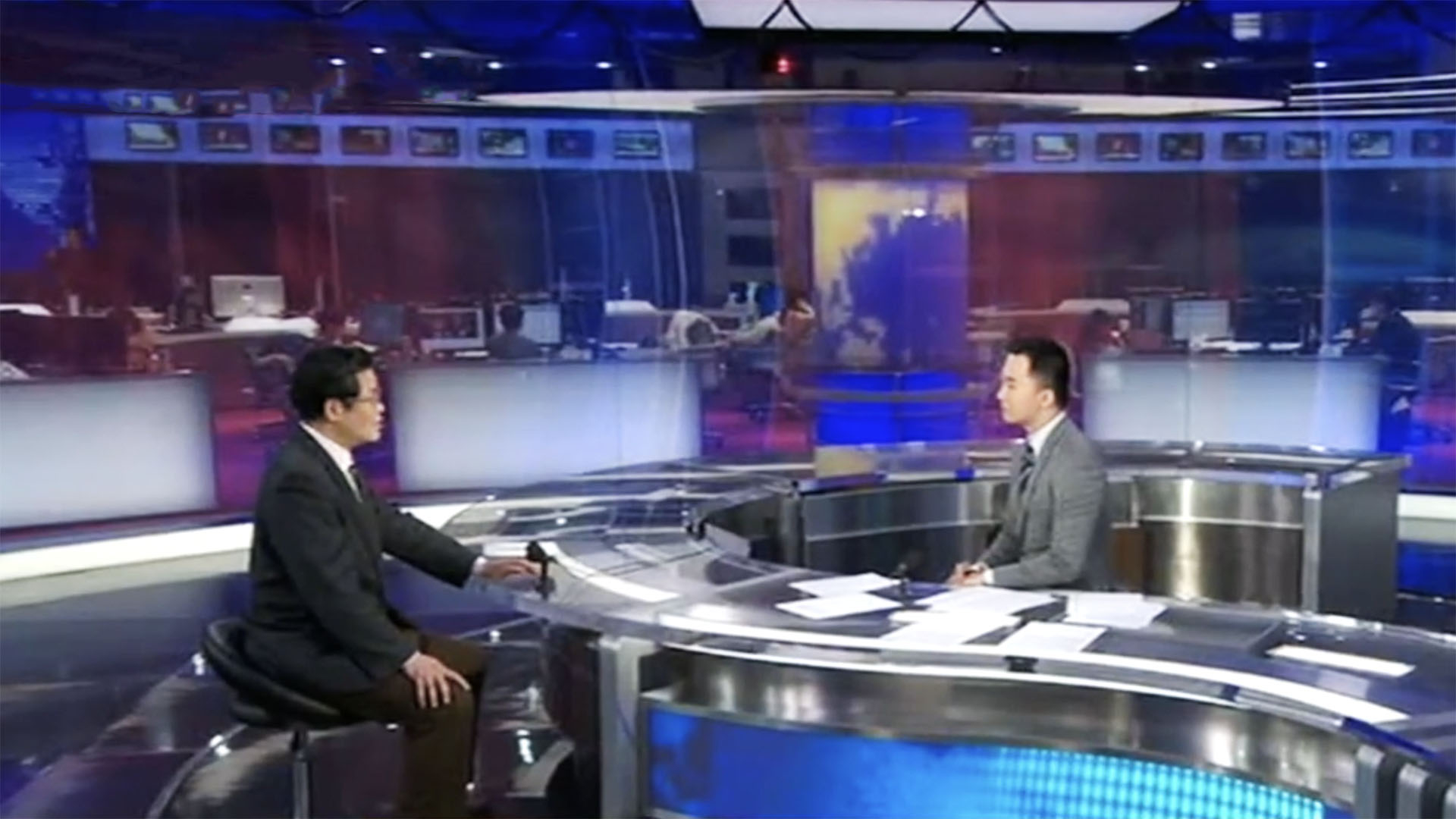
TV Show
18:07, 03-Feb-2019
Expert: Without political stability, there will be no solution in Venezuela
Global Watch

A political crisis is ongoing in Venezuela. On January 23, the National Assembly of Venezuela, which is opposition majority, stated that results of the election were invalid and declared Juan Guaidó as the acting president, who then had no support from the military. However, on Saturday, General Francisco Yanez, high command of Venezuela's air force, said he now recognized opposition leader Juan Guaido as interim head-of-state.
Jiang Shixue, a professor at the Institute of Global Studies at Shanghai University, shared his insight with CGTN. He criticized America's interference and pointed out that it is only through negotiation that the political crisis will be completely resolved.
Jiang stated that Venezuela has always been seen as the backyard of the U.S. It is the embodiment of the U.S. Monroe Doctrine, which was raised by then U.S. President James Monroe in 1823. The nature of the Monroe Doctrine is a kind of colonialism, aiming at projecting Washington's power into Latin American countries for the sake of American interests.
00:37

According to Jiang, although former U.S. Secretary of State John Kerry once said that the Doctrine was over in November 2013, America never truly gave it up. Instead, the Monroe Doctrine still works as the bedrock of U.S. foreign policy, especially when it comes to Latin America.
"I would say that this kind of doctrine is still the foundation of the U.S. strategy towards its backyard," Jiang told CGTN.
In Jiang's opinion, the Monroe Doctrine isn't in line with globalization, and will neither benefit the region nor economically contribute to the rest of the world.
As for the solution of the crisis, Jiang firmly believes that Venezuelan people play a key role in the issue.
"Well, first of all, we must point out that a key to dealing with this crisis is in the hands of the Venezuelan people," Jiang said.
Jiang also pointed out that in order to deal with the crisis, every nation must follow the UN charters, respecting Venezuelan people's choice. He further stated that any kind of interference will damage Venezuela's interests. Thus, respecting the choice of Venezuelans is the premise of the problem-solving process.
Jiang appealed to Maduro's government and its opposition to keep calm and work hard to find a solution through negotiation. According to Jiang, the result of the 2018 election is the bone of contention. The two sides have different points of view about their positions. While the opposition asks for a new election, Maduro's side insists on there being no election this year and upholds the result of last year's election: Maduro is still the president.
00:31

Jiang believes that for the sake of the Venezuelan people, both sides should compromise, or all efforts until now are nothing more than beating a dead horse.
"My best hope is that both sides can sit down and even have a cup of coffee and then talk about the future of the country. Otherwise, if no side is willing to make any compromise, the situation will get worse," Jiang said.
Jiang also expressed his doubt toward the West's confidence in opposition leader Juan Guaidó. In his opinion, given Venezuela's unstable political situation, Juan Guaidó is incapable of rescuing the country's ailing economy.
01:14

He stated that Venezuela has been suffering from the so-called "Dutch disease" over the past two decades. Dutch disease refers to the negative consequences an economy faces when foreign currency pours into one sector, and not others. For example, the discovery of oil leads to a spike in foreign direct investment, making the local currency stronger and affecting the balance of imports and exports. Venezuela, which has the world's largest proven oil reserves, has an economy that began barreling out of control as global oil prices began to sink. Jiang believes that the opposition cannot deal with this kind of Dutch disease in the short term.
According to Jiang, political stability is the premise of economic growth, and the most pressing matter of the moment is to solve the political crisis first, then seek economic prosperity.
"Without political stability, there will be no solution at all," Jiang said.
(If you want to contribute and have specific expertise, please contact us at opinions@cgtn.com.)

SITEMAP
Copyright © 2018 CGTN. Beijing ICP prepared NO.16065310-3
Copyright © 2018 CGTN. Beijing ICP prepared NO.16065310-3